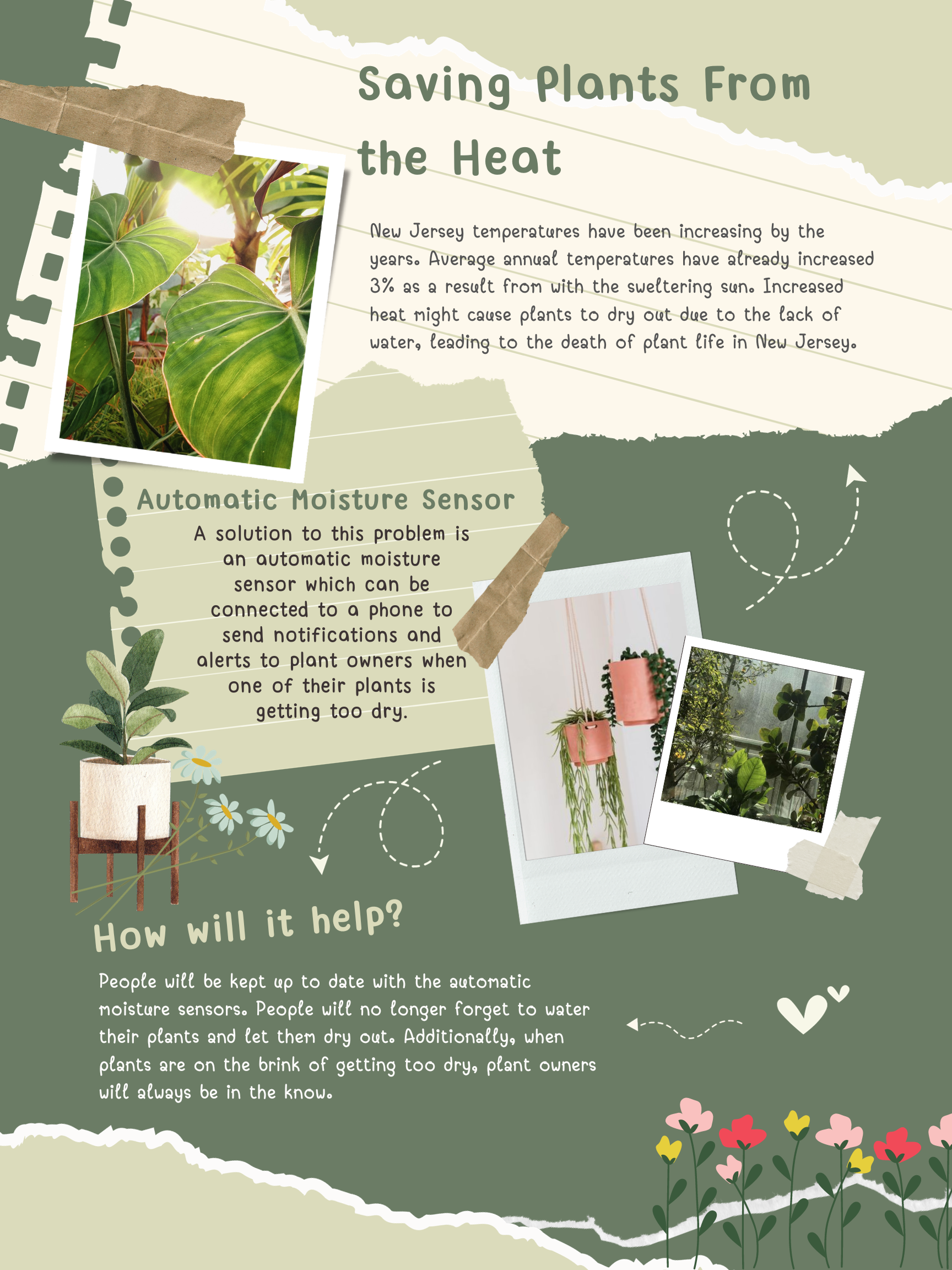Data shows that in the past thirty years, New Jersey temperatures have been increasing. It’s expected for the average annual temperatures in New Jersey to increase by about 9°F within the next 80 years. Summer temperatures used to peak at around 85°F, but in 2023, temperatures reached a peak of 105°F in New Jersey. Additionally, heatwaves are expected to be more frequent and longer by 2050.
There are many ways increased heat might affect plant life. One harm of increased temperatures is that they might cause water to dry out. Plants rely on water for growth and nutrients and if they are too dry, they wilt and inevitably, die.
A way to help prevent this is by introducing automatic moisture sensors that are connected to mobile devices. Moisture sensors pass electromagnetic waves through soil which helps indicate the amount of moisture present. The sensor runs periodically and sends notifications to a device, quickly alerting when the soil is getting too dry. Plants can now be watered when necessary, decreasing the chances of getting dried out.
Devices like this can help people be up to date with their plants’ water conditions, making sure they don’t dry out on hot, sunny days.
Contact us
Thank you for your interest in contacting Future Engineers. We look forward to connecting with you!
General Inquiries
support@futureengineers.orgSponsorship Inquiries
sponsor@futureengineers.org
